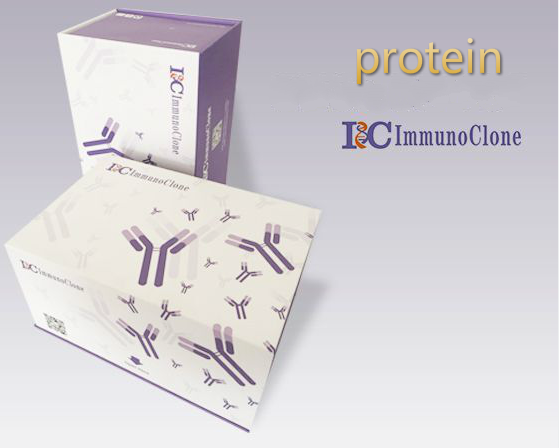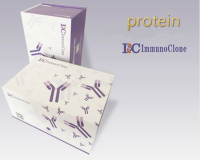

客服电话:021-61998208


凋亡相关因子(FAS)重组蛋白
凋亡相关因子(FAS)重组蛋白
Recombinant Factor Related Apoptosis (FAS)
CD95; ALPS1A; ALPS1-A; APO1; APT1; FAS1; FASTM; TNFRSF6; Fas Receptor; TNF Receptor Superfamily Member 6; Tumor Necrosis Factor Receptor Superfamily Member 6
[ DESCRIPTION ]
Protein Names: Factor Related Apoptosis
Synonyms: FAS, Apt1, Tnfrsf6
Species: Rat
Size: 100µg
Source: Escherichia coli-derived
Subcellular Location: Membrane; Single-pass type I membrane protein.
[ PROPERTIES ]
Residues: Met21~Lys170 (Accession # Q63199), with two N-terminal Tags, His-tag and
GST-tag.
Grade & Purity: >95%, 44 kDa as determined by SDS-PAGE reducing conditions.
Formulation: Supplied as liquid form in Phosphate buffered saline(PBS), pH 7.4.
Endotoxin Level: <1.0 EU per 1µg (determined by the LAL method).
Applications: SDS-PAGE; WB; ELISA; IP.
(May be suitable for use in other assays to be determined by the end user.)
Predicted Molecular Mass: 44.0 kDa
Predicted isoelectric point: 6.4
[ PREPARATION ]
Reconstitute in sterile PBS, pH7.2-pH7.4.
[ STORAGE AND STABILITY ]
Storage: Avoid repeated freeze/thaw cycles.
Store at 2-8oC for one month.
Aliquot and store at -80oC for 12 months.
Stability Test: The thermal stability is described by the loss rate of the target protein. The loss rate wasdetermined by accelerated thermal degradation test, that is, incubate the protein at 37oC for 48h, and no obviousdegradation and precipitation were observed. (Referring from China Biological Products Standard, which wascalculated by the Arrhenius equation.) The loss of this protein is less than 5% within the expiration date underappropriate storage condition.
[ SEQUENCES ]
The target protein is fused with two N-terminal Tags, His-tag and GST-tag, its sequence is listed below.
MRNKKFELGL EFPNLPYYID GDVKLTQSMA IIRYIADKHN MLGGCPKERA EISMLEGAVL DIRYGVSRIA YSKDFETLKVDFLSKLPEML KMFEDRLCHK TYLNGDHVTH PDFMLYDALD VVLYMDPMCL DAFPKLVCFK KRIEAIPQID KYLKSSKYIAWPLQGWQATF GGGDHPPKSD GSTSGSGHHH HHHSAGLVPR GSTAIGMKET AAAKFERQHM DSPDLGTLEV LFQ GPLGSEFMQGTDSIFEG LELKRSVRET DNNCSEGLYQ VGPFCCQPCQ PGERKVKDCT TSGGAPTCHP CTEGEEYTDR KHYSDKCRRCAFCDEGHGLE VETNCTRTQN TKCRCKENFY CNASLCDHCY HCTSCGLEDI LEPCTRTSNT KCKKQSSNYK
[ REFERENCES ]
1. Hirata, H., et al. (1998) J. Exp. Med. 187: 587-600.
2. Milhas,D., et al. (2005) J. Biol. Chem. 280 :19836-42.
3. Brunner,T., et al. (1995) Nature. 373: 441-4.
4. Cascino, I., et al. (1995) J.Immunol. 154: 2706-13.
5. Mary, M., et al. (2001) J. Biol. Chem. 276: 4964-71.
特别提示:本公司的所有产品仅可用于科研实验,严禁用于临床医疗及其他非科研用途!








